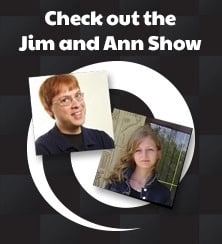Yesterday QualityGal gave a few thoughts on the recent comments about Michael Gray’s take on Guy Kawasaki accepting a camera for the review…and how they feel Google should treat this (the ole paid link debate stuff).
It’s a debate that I’m personally happy to stay out of….though I know how Yahoo would try to treat this…..hey, the world will never be perfect…ya can’t always get what ya want…but if you try some times, you might just find…you can get what you need…oh yea!…
But since QualityGal talked some on paid links yesterday (and I’ll try to stay out of that), maybe I can talk some of Google’s Quality Raters today (FYI, there may possibly be over 10,000 of them) – QualityGal can’t really comment; she’s a stickler about her NDA.
Today I saw that Barry Schwartz had noted a post by Scott Huffman on the Google Blog on how Human Reviewers are used to help Google with their Algorithms.
Now QualityGal may have a lot of experience rating web pages, but don’t think that she’s ever told me any Google secrets…..I had already given a few presentations at SEOClass on "What a Human Reviewer Might Look At" before ever hiring QualityGal. I know a lot of what the human reviewers might be looking at…I may have come across some documents online…I’ll plead the 5th on that…
Anyways, there’s really no "hidden secrets" in any of these documents that I many or may not have read…there’s no "oh, here’s something one could exploit"….if anything, it shows that the human review is very very hard to "exploit"….you need to provided the searcher what they are seeking.
I can narrow all the documents I may have ever read about the human reviewers down to this basic point.
Serve the User’s Intent for the Phrase Searched.
As Scott said on the Google Blog today,
First, understanding what a user really wants when they type a query — the query’s "intent" — can be very difficult. For highly navigational queries like [ebay] or [orbitz], we can guess that most users want to navigate to the respective sites. But how about [olympics]? Does the user want news, medal counts from the recent Beijing games, the IOC’s homepage, historical information about the games, … ? This same exact question, of course, is faced by our ranking and search UI teams. Evaluation is the other side of that coin.
In the old days at We Build Pages if a client said they wanted to target one specific page to rank great for "Widgets," "Green Widgets," and "Small Widgets," we might have said "sure" if we felt the traffic was good, felt we could achieve it, and felt they’d get their ROI. These days, we’d take our analysis one step further to ask "Does this page serve as a great page for the user intent for each of those phrases?" …and to take that a step further to ask, "How good is that page compared to the other pages in the top 10 for each phrases?"
We’ve also brought QualityGal into several meetings with clients to help explain to them that it’s not the best thing to target a page that doesn’t match the user’s intent. We can change the page or the targeted page (and give ideas for solutions)…but we really want to match the user’s intent…it’s the best thing for everyone (the user, Google, the site…and the SEO).
That may sound simple, but you’d be amazed at how many people only think of keyword popularity, or ROI, rankings, yada yada metrics…yet they leave out "user intent" in their analysis …and ranking #1 for that dream phrase isn’t utilized if it doesn’t match the users intent…and worse case, the human reviewers may collectively vote that you’re type of page isn’t they type that should be on the first page….that’d suck.




7 Responses
Taking this thought. I heard Google say (In a video) that they have a problem with understanding when someone types in [dallas web design] because they don’t know if the users are looking for a company named ‘dallas web design’ or ‘web design’ in ‘dallas’. So they do various tests and move the domain name [dallas web design] around to see if it’s value to the users.
Like if dallaswebdesign.com was #1 they throw it to #3 and wait to see if it still has a high CTR/low bounce rate. And other various tests.
It amazes me the ‘secrets in their Algos’ that you can get from those vids. 😉 Go YouTube! 🙂
If you take into account conversions and sales, then your point of intent can be understood much easier. It is the same discussion about relevant, laser-targeted or untargeted traffic, too.
In this case, it is more laser-targeted traffic, it seems, but I really don’t find it gamebreaking or smth. Am I missing anything?
Thanks.
Yura, you could be missing something….depends. for the phrases you’re targeting, do you deserve to be in the top 10? Is the PAGE that ranks a great resource (note I said PAGE, not site…everything with the raters is Page Based…not Site Based). It not enough to have relevant traffic…to stay in the top 10 you have to be a cut above everyone else on your PAGE.
I do believe you just outed me, boss. 😉
opps….yea….but no one knows your real name yet 😉
Right Lucy?
LOL. There’s that, at least!
I just had to come and find out who outed you. LOL
Comments are closed.